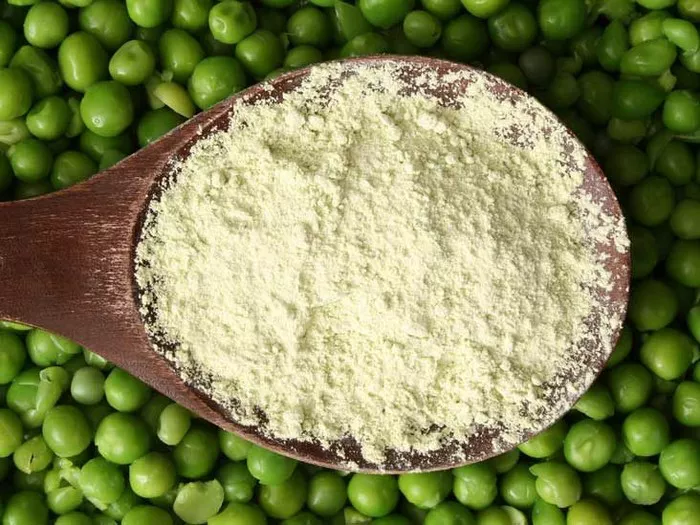Protein intake is a fundamental aspect of any fitness regimen. While the emphasis on protein is often associated with workout days, its role on rest days is equally crucial. This article explores the importance of protein on rest days, the science behind it, and practical recommendations for optimal intake.
The Role of Protein in Muscle Recovery and Growth
Protein is a macronutrient composed of amino acids, which are the building blocks of muscle tissue. During exercise, muscle fibers undergo microscopic damage, and protein is essential for repairing these fibers, leading to muscle growth and increased strength.
On rest days, the body continues to repair and build muscle. The anabolic (muscle-building) processes are in full swing, making protein intake vital even when you’re not actively working out. Consuming adequate protein supports these processes and helps maintain a positive nitrogen balance, which is crucial for muscle preservation and growth.
Daily Protein Requirements: A General Overview
The Recommended Dietary Allowance (RDA) for protein is about 0.8 grams per kilogram of body weight for the average sedentary adult. However, for those engaged in regular physical activity, especially resistance training, this requirement increases. Most experts suggest a protein intake of 1.2 to 2.2 grams per kilogram of body weight for athletes and those who are physically active.
Protein Intake on Workout Days vs. Rest Days
It’s a common misconception that protein needs significantly decrease on rest days. In reality, maintaining a consistent protein intake is crucial to support ongoing muscle recovery and synthesis. While calorie requirements might drop slightly due to reduced energy expenditure, protein needs remain relatively constant.
The Science Behind Protein Synthesis on Rest Days
Muscle protein synthesis (MPS) is the process by which the body repairs and builds muscle proteins. Research indicates that MPS rates are elevated for up to 48 hours following resistance training. Therefore, consuming protein on rest days supports this prolonged period of muscle repair and growth.
Factors Influencing Protein Needs on Rest Days
Several factors influence how much protein you should consume on rest days:
Training Intensity and Volume: The more intense and frequent your workouts, the higher your protein needs, even on rest days.
Body Composition Goals: Whether you aim to build muscle, maintain muscle mass, or lose fat affects your protein intake.
Individual Metabolism: Metabolic rates and protein utilization can vary among individuals.
Age and Gender: Older adults and men generally require more protein to support muscle maintenance.
Calculating Your Protein Needs on Rest Days
To determine your protein needs on rest days, consider the following steps:
Assess Your Activity Level: Understand your average weekly physical activity.
Set Your Protein Goal: Aim for 1.2 to 2.2 grams of protein per kilogram of body weight.
Adjust for Rest Days: Ensure your protein intake remains within this range, even on days off from training.
Timing and Distribution of Protein Intake
Distributing protein intake evenly throughout the day maximizes muscle protein synthesis. Aim for 20-40 grams of protein per meal, spaced 3-4 hours apart. This strategy ensures a steady supply of amino acids to the muscles, promoting continuous recovery and growth.
See Also: Is There Any Fruit with Protein?
Protein Sources for Rest Days
Choose high-quality protein sources that provide all essential amino acids. Some excellent options include:
Lean Meats: Chicken, turkey, and lean beef are rich in protein and low in fat.
Fish and Seafood: Salmon, tuna, and shrimp offer high protein content and healthy fats.
Dairy Products: Greek yogurt, cottage cheese, and milk are excellent sources of protein and calcium.
Plant-Based Proteins: Beans, lentils, quinoa, and tofu provide ample protein for vegetarians and vegans.
Protein Supplements: Whey, casein, and plant-based protein powders can help meet your protein needs conveniently.
Sample Meal Plan for Rest Days
Here’s a sample meal plan to help you meet your protein goals on rest days:
Breakfast: Greek yogurt with berries and a sprinkle of nuts.
Snack: Protein smoothie with whey protein, almond milk, and a banana.
Lunch: Grilled chicken breast with quinoa and steamed vegetables.
Snack: Cottage cheese with pineapple slices.
Dinner: Baked salmon with a side of brown rice and roasted broccoli.
Evening Snack: A handful of mixed nuts or a protein bar.
Hydration and Protein Metabolism
Adequate hydration is essential for protein metabolism. Water helps transport nutrients to muscles and aids in digestion and absorption of protein. Aim to drink at least 8-10 glasses of water daily, more if you engage in intense physical activity or live in a hot climate.
Common Myths About Protein on Rest Days
Several myths surround protein consumption on rest days. Let’s debunk a few:
You Don’t Need Protein on Rest Days: As discussed, protein is crucial for muscle recovery and growth, even on non-training days.
High Protein Intake Is Harmful: For healthy individuals, consuming high amounts of protein within recommended ranges is safe and beneficial for muscle maintenance.
Protein Should Only Be Consumed Post-Workout: Spreading protein intake throughout the day is more effective for muscle protein synthesis than consuming it all at once.
Signs You May Not Be Getting Enough Protein
Not consuming enough protein can hinder your fitness progress and overall health. Look out for these signs of inadequate protein intake:
Muscle Weakness and Fatigue: Insufficient protein can lead to muscle loss and decreased strength.
Slow Recovery: Prolonged soreness and delayed recovery indicate a need for more protein.
Frequent Illness: Protein supports immune function, and a lack of it can make you more susceptible to infections.
Hair, Skin, and Nail Problems: Protein deficiency can manifest as brittle nails, hair loss, and poor skin health.
Balancing Protein with Other Nutrients
While protein is vital, a balanced diet that includes carbohydrates and fats is also essential. Carbohydrates replenish glycogen stores, providing energy for workouts, and fats support hormone production and overall health. Aim for a balanced macronutrient distribution:
Protein: 20-35% of total daily calories.
Carbohydrates: 45-65% of total daily calories.
Fats: 20-35% of total daily calories.
Consulting with a Nutrition Professional
Individual protein needs can vary widely based on numerous factors. Consulting with a registered dietitian or nutritionist can provide personalized recommendations tailored to your specific goals, body composition, and dietary preferences.
Conclusion
Protein intake on rest days is as crucial as on workout days. Understanding its role in muscle recovery, calculating your needs, and incorporating high-quality protein sources into a balanced diet will support your fitness goals and overall health. Remember, consistency is key. By maintaining adequate protein intake every day, you ensure continuous muscle repair, growth, and optimal performance.
[inline_related_posts title=”You Might Be Interested In” title_align=”left” style=”list” number=”6″ align=”none” ids=”11006,10937,10862″ by=”categories” orderby=”rand” order=”DESC” hide_thumb=”no” thumb_right=”no” views=”no” date=”yes” grid_columns=”2″ post_type=”” tax=””]


































